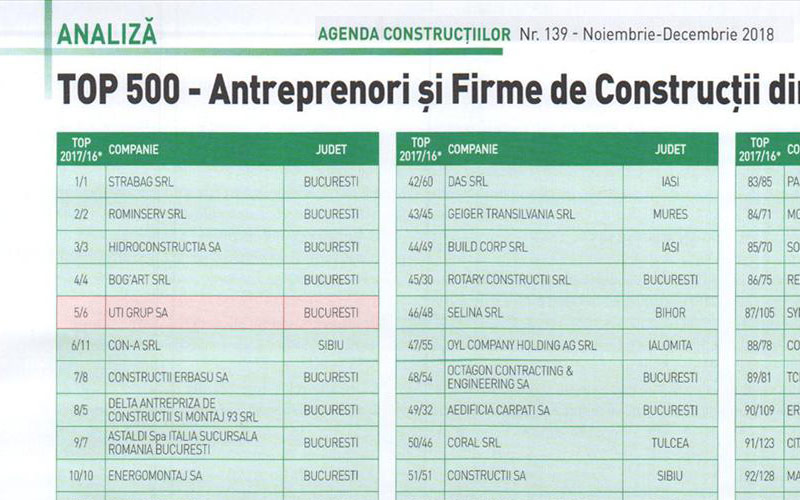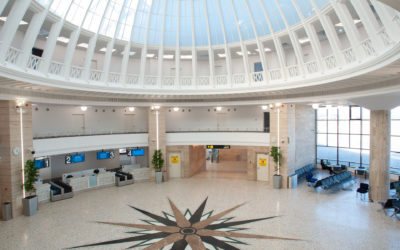
UTI Grup – included among the top construction companies in Romania
UTI Grup ranked 5th in Top 500 Construction Companies, 2018 edition of the Romanian specialized magazine Agenda Constructiilor, one place higher compared to the previous edition. The ranking was based on an analysis of the companies’ revenues, the major projects and their values.
In the construction and installations field, UTI Grup, that provides a large range of specialized solutions and services, registered a turnover of 68 million euro in 2017. For 2018, the company reported a turnover of 65 million euro that stand for 65% of the total business revenues of UTI group of companies.
During 2017-2018, UTI executed some important construction projects: in the field of transportation infrastructures, the company finalized the works for the extension of the Bazilescu – Straulesti subway line and the modernization works for the technical infrastructure of the main tramway depot of UT Arad. The company has also performed complex works for Drumul Taberei – Eroilor 2 subway line, as well as the modernization works of the Agigea, Cernavoda, Ovidiu locks, the most comprehensive project of maritime transportation infrastructure modernization executed in Romania since 1990.
In the field of airport infrastructure, UTI has finalized the works for Bacau International Airport and the modernization works of the runway lighting system of Sibiu Airport, started the construction and modernization works of Oradea International Airport and has signed the contract for the extension and modernization of the passenger terminal of Suceava Airport. During the same period, UTI concluded the works for the Water Park in Craiova, the largest aquatic leisure complex and one of the most complex entertainment infrastructure sites in Oltenia.
Maintaining high business volumes in this area is all the more worthwhile since the company’s activity has been affected by external factors such as delays in launching the announced major investment programs and lack of accountability by central and local authorities for public infrastructure development and modernization projects (stadiums, hospitals, transport, etc.), the trailing of the authorization and permits to start work, fund allocation blocking, lack of workforce.




















